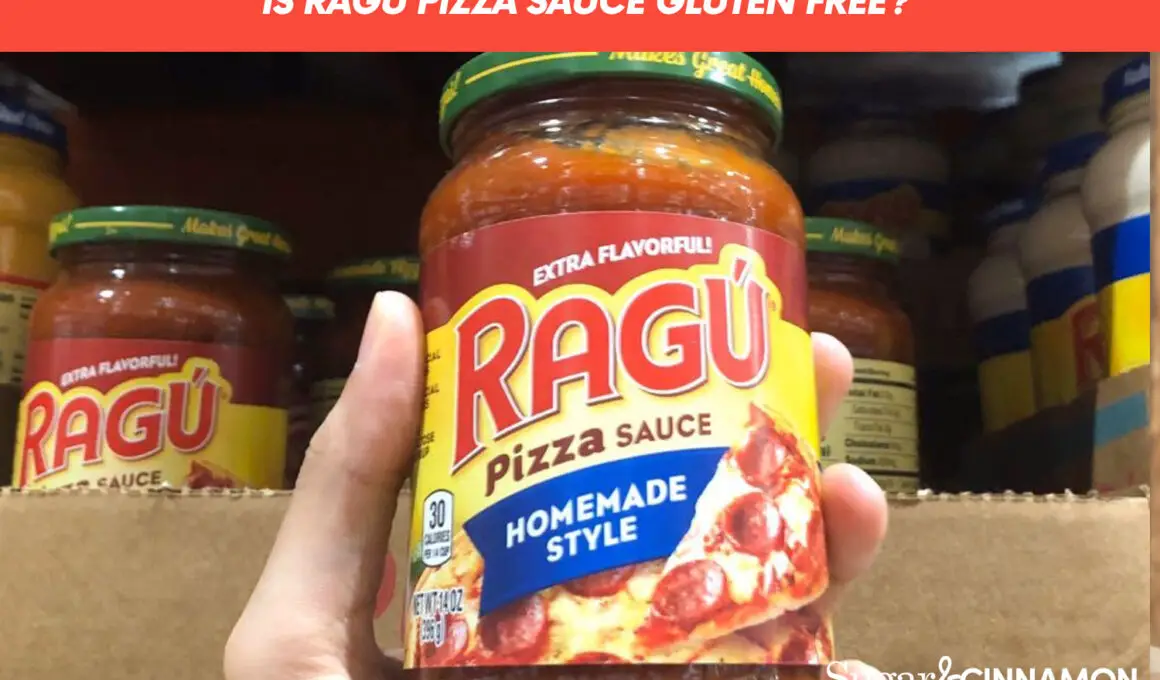Table of Contents Show
Ragu Pizza Sauce is an easy way to spice up a homemade pizza recipe. Ragu sauces include a diverse range of sauces that can also be used as substitutes for pizza sauce. Concerns about whether Ragu Pizza sauce is gluten-free due to the variety of available sauces.
Quick answer: Yes, Ragu Pizza sauce is gluten-free. However, other Ragu sauces, particularly pasta sauces, contain gluten. Individuals who are gluten intolerant or have celiac disease can use Ragu Pizza sauce.
This article is to provide everything you need to know concerning whether Ragu pizza is gluten-free or not. You will also find information on how to identify gluten-containing sauces.
Is Ragu Pizza Sauce Gluten-Free?
Yes, Ragu Pizza Sauce is gluten-free. Yes, Ragu Pizza Sauce is gluten-free. Ragu sauces are available in a variety of flavors that can be used in pizza and pasta recipes.
Some of these sauces contain gluten, but the original Ragu Pizza Sauce does not. Ragu Pizza Sauce contains the following ingredients: Soybean oil, salt, spices, and natural flavors; tomato puree (water, tomato paste).
Individuals who are most concerned with whether Ragu Pizza is gluten-free are those allergic to gluten or suffering from Celiac disease. Gluten-containing foods can cause diarrhea, constipation, bloating, and fatigue.
The soybean oil added to Ragu Pizza sauce raises the question of whether it contains gluten. Soybean oil is gluten-free.
How To Identity Gluten-Free Pizza Sauce
Most people opt for other Ragu sauces when they run out of Ragu pizza sauce or when creating a new recipe.
Although Ragu sauces do not have any indications stating whether or not a product is gluten-free, users are frequently advised to check the allergens and ingredients listed on the product to determine if the flavor is suitable for them.
Those who are gluten intolerant, particularly those with celiac disease, should be cautious of condiments and sauces used in their meals, especially when the Sauce brand offers a variety of flavors.
The original pizza sauce does not contain gluten, but if you want to use other Ragu flavors in your pizza recipe, keep the following in mind:
- Check the product label’s ingredients to see if the sauce flavor contains gluten. Ingredients to look for include rye, barley, malt, and wheat.
- Check the product label to see if allergens have been highlighted.
- Keep an eye out for gluten-containing additives such as caramel color or extracts.
Tips To Consider Before Choosing Pizza Sauce
Below are tips to consider before selecting a pizza sauce:
- Check for allergens to prevent illness after consuming a meal.
- If you’re using pasta sauce instead of pizza sauce, strain it to remove the liquid and blend it in a food processor until it’s a smooth paste.
- Choose flavors that will work well with your recipe. Unless they come highly recommended, avoid trying new flavors.
- Use homemade pizza sauce to produce a fresh pizza delicacy.
- Consider that some companies do not list all of the ingredients on their product labels. If you have a reaction or complications after using a particular pizza sauce, avoid using it.
- If you are not satisfied with the taste, add spices to enhance the flavor of your pizza sauce.
- Check the expiry date to determine if it is still consumable.
- Sauces with dents, cracks, or that appear swollen should be avoided. These are indicators that the pizza sauce has gone bad.
Final Note
To be on the safe side when selecting pizza sauces for your pizza recipe, we recommend making homemade pizza sauce.
If you are allergic to gluten and consume a gluten-containing dish, you should see a doctor right away.













